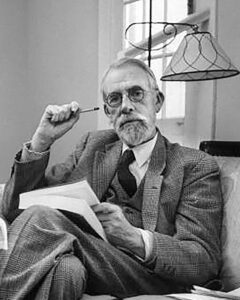“For the new paganism has nothing in common with the poetical idealization of Hellenic myth by the humanists and classicists of recent centuries: it is the unloosing of the powers of the abyss — the dark forces that have been chanted by a thousand years of Christian civilization and which have now been set free to conquer the world. For the will to power is also the will to destruction, and in the last event it becomes the will to self-destruction.” (Christopher Dawson, The Judgment of the Nations.
The Judgment of the Nations was written during World War II, at a time when the outcome was fully in doubt. The book describes the battle for existence between the Christian culture which had stood for centuries on a foundation centuries older, and the new totalitarian state.
The battle rages on. The stakes are the same. Dawson’s analysis provides crucial insights about the nature of the conflict and the nature of the combatants. This latter point is especially interesting because many of the combatants do not know which side they are on.
“But the rational ideals of Liberalism were abstracted from a historical religious tradition, and the Liberal culture was strongest and most enduring precisely in those societies in which the Christian social and political consciousness was most alive.
“Nevertheless Liberalism prepared the way for the complete secularization of society by making a sharp division between the public world of economics and politics and the private world of religion and intellectual culture.”
One of the misperceptions Dawson sheds light on is the false division between what today we would call liberals and conservatives. Even though in a political and to some degree social sense these two sides have been waging war since the Enlightenment, those on both sides share a common heritage of Christian morality, so ancient and so deep in their bones that we are not necessarily even aware of it. Dawson points out that the real enemy is the totalitarian, the one who seeks to control every aspect of life — in thought, deed, and spirit. This total control of every aspect of human life, the making of human life totally subservient to the needs of the state, is completely antithetical to Christian morality. And whether the liberal or conservatives acknowledges the Christian roots of his morality, those roots exist nonetheless and make the totalitarian the enemy of both.

If you think today’s political arena is mere theater, Dawson would agree with you. In the totalitarian state, leaders pit group against group, dividing and conquering — while at the same time, propagandize communication (news, art, education, etc.) to create a mass culture where the highest virtue is subservience of the individual to the needs of the state. This was the blueprint for Nazi Germany and the Soviet Union, and Dawson wonders whether the free West, with a culture based on the natural law, freedom and on the sacredness of the individual, can resist using science, industrialization, and a highly organized propaganda machine for the same sinister purposes, especially in the midst of a world war. In short, he wonders whether the West can win the war without losing its soul.
Dawson believed the highly organized totalitarian state posed such an enormous threat to Christian belief that it might unite Christianity against it, and thus set the stage for a victory for freedom and the individual:
“The only way to desecularize culture is by giving a spiritual aim to the whole system of organization, so that the machine becomes the servant of the spirit and not its enemy or its master.”
Unfortunately for humanity, Dawson’s prediction has not as yet come to pass; instead, Christianity is more fragmented than ever. And whether you are a Christian or not, this situation is dire indeed if you are in any way, shape, or form a supporter of humanity. Dawson observes that totalitarianism is a war not against democracy, but instead against humanity. There is no business or special interest group or political cause or philosophical school of thought that can prevail because this war is a spiritual war and as such requires religion to take the leading role.
“Therefore the Church must once more take up her prophetic office and bear witness to the Word even if it means the judgment of the nations and an open war with the powers of the world.”
It is no accident of history of success of “liberal” politics that has banned religion from the public square. We must look deeper for the real cause.
Dawson wrote this in 1942 about the present. Does it describe our future as well?
“It is that there is no limit to the regressive movement: that in a few years a society can pass from a high revolutionary idealism to a state of organized inhumanity which plans the liquidation of classes, the transplantation of populations and the destruction of whole peoples as ruthlessly as the ancient Assyrians or the medieval Tartars. This new barbarism is, in fact, worse than that of the past in that it is inspired not by the naive cruelty of a simple warrior society but by the perverted science of a corrupt civilization.”
